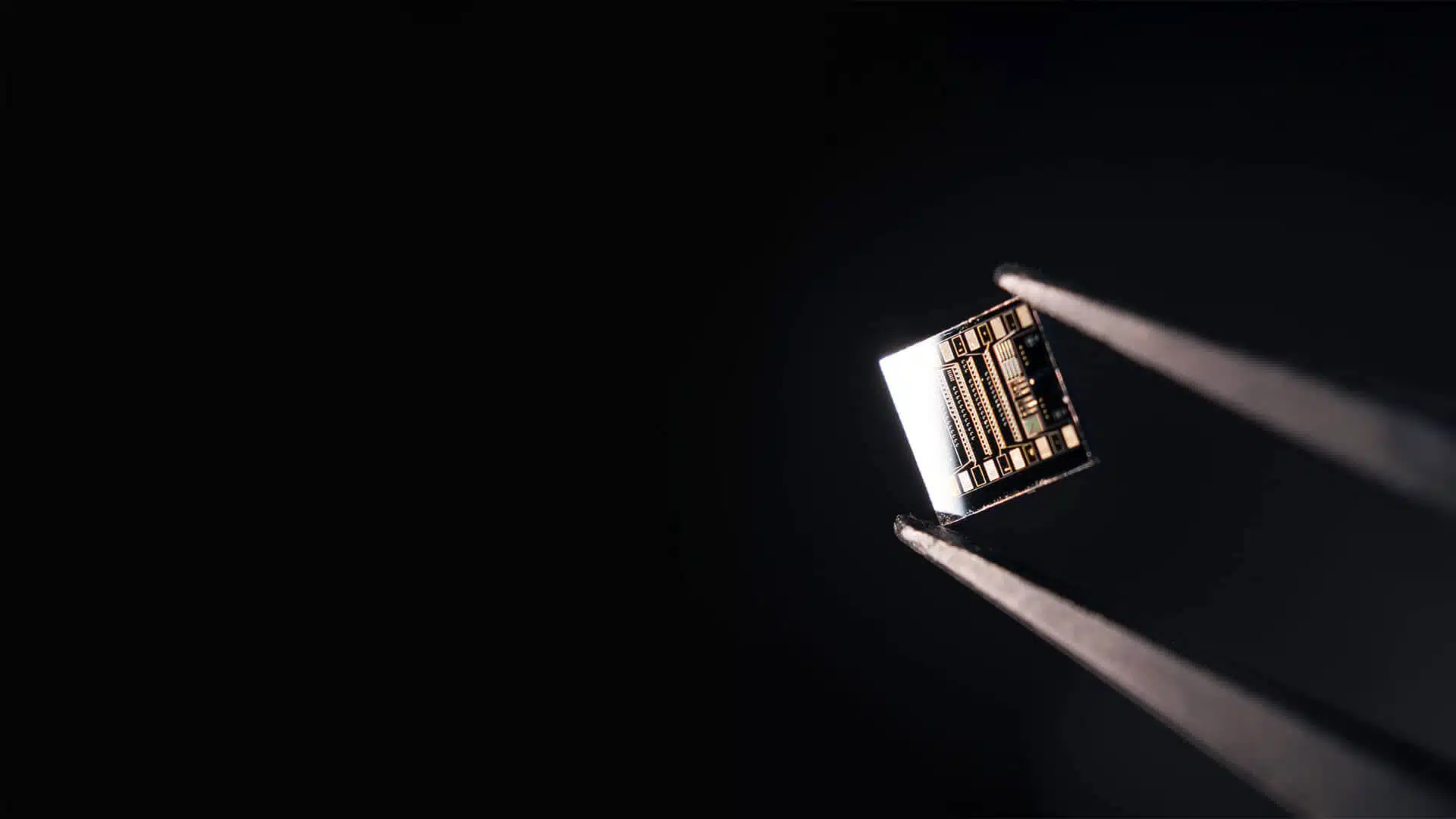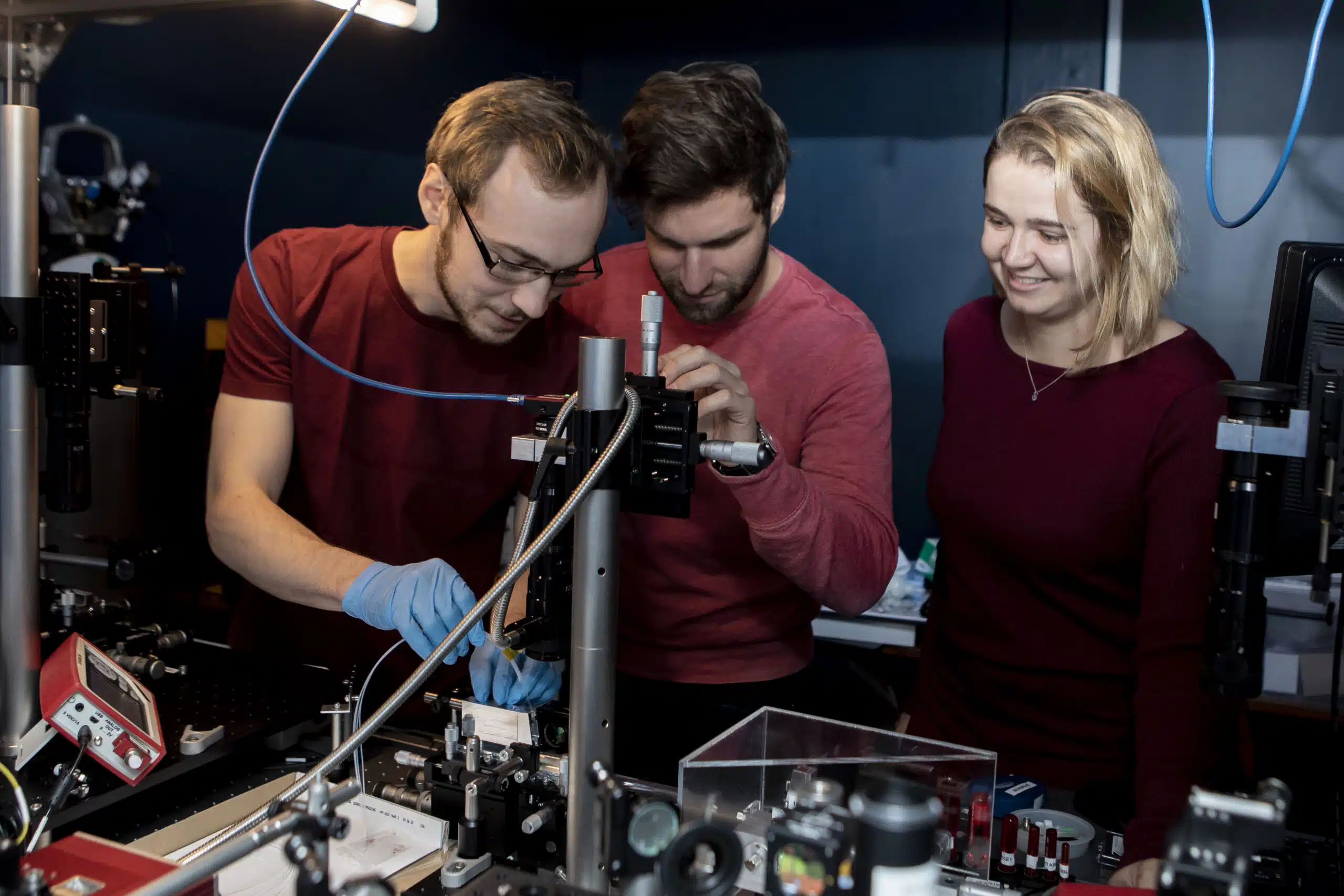
Sparrow Quantum, a leading European supplier of photonic quantum chips, has secured €21.5 million in Series A funding to accelerate the development and commercialization of its world-leading quantum chip technology. The investment round was led by PensionDanmark, with strong backing from EIFO and Novo Holdings and additional investments from existing investors 2xN, LIFTT, and the European Innovation Council. This investment will enable Sparrow Quantum to meet the growing demand for photonic quantum hardware by accelerating R&D, expanding chip production, and bringing next-generation quantum chips to market.
Pioneering the Future of Photonic Quantum Chip Technology
Sparrow Quantum builds on a rich Danish history of scientific quantum discovery. While at the Niels Bohr Institute in Copenhagen, its founder Professor Peter Lodahl conducted research that laid the groundwork for the company’s flagship product, Sparrow Core—an on-chip deterministic single-photon source critical for scaling photonic quantum computing by generating photons reliably on demand. Today, Sparrow Core sets the industry benchmark, delivering best-in-class efficiency, quality, and exceptional stability.
“With this investment, we can truly intensify our efforts to bring quantum technology from the lab to the market.” Says Professor Peter Lodahl, Founder and Chief Quantum Officer of Sparrow Quantum. “It enables us to scale up in three critical areas which are essential for industrializing our photonic quantum chips and ensuring we can deliver stable, advanced solutions to the market. It is an honor to build up a truly world-class team of quantum photonics experts with unique know-how on quantum photonic chip technology”.
Building on a €4.1 million seed investment raised in 2023, this new funding enables Sparrow Quantum to broaden its ambitions across the following strategic areas:
- Scaling Production: Establish a scaled-up production for photonic quantum chips to meet growing demand.
- Advancing R&D: Develop entangled photon sources, critical to unlocking the full potential of quantum technologies.
- Expanding Expertise: Expand technical expertise to bring new quantum products to market.
“Quantum technology can open an entirely new world of solutions to complex problems, and the Danish research environment, from which Sparrow Quantum emerges, has the potential to position Denmark as an international frontrunner in the field. Therefore, we see a clear potential for the investment to yield an attractive return on our members’ pension savings while also benefiting the national economy and Danish industry. That is why it is an obvious investment for PensionDanmark.” says Peter Stensgaard Mørch, CEO of PensionDanmark.
Building on a Solid Foundation
In the past few years, Sparrow Quantum has made significant strides toward delivering market-ready solutions by partnering with quantum computer integrators and full-stack system providers across Europe. Powered by the Sparrow Core chip, photonic quantum computers can achieve notably faster processing speeds than earlier iterations using probabilistic sources, fuelling further advancements in generative AI and quantum-optimized machine learning. These developments promise unprecedented scalability and real-world applications across multiple sectors—within Europe and beyond.
Strengthening Europe’s Quantum Position
This investment exemplifies how to foster broader collaboration among chip manufacturers, foundries, and system integrators on European soil, marking a crucial leap for Europe’s emerging quantum supply chain. As Sparrow Quantum’s CEO Kurt Stokbro highlights: “This investment is a testament to Denmark and Europe’s ability to lead in quantum technology. With strong backing from visionary Danish investors, we are ready to unlock quantum breakthroughs that benefit society and the global economy.” Beyond commercial scaling, this investment strengthens Europe’s quantum supply chain, ensuring that chip manufacturing, quality control, and R&D remain within European borders. This aligns with key EU initiatives like the Chips Act, reinforcing technological sovereignty and global competitiveness in quantum innovation.
“Sparrow Quantum is a great example of how the Danish quantum community, with the foundation laid by the Niels Bohr Institute, possesses an incredible expertise. It is through Professor Peter Lodahl’s many years of research at the Institute that the building blocks for Sparrow Quantum’s groundbreaking and now internationally sought-after quantum chip have been established. With this investment, the development team is strengthened, enabling the company to expand its position as the leading chip supplier for future quantum computers. At the same time, we further enhance Danish and European quantum expertise,” says Peder Lundquist, CEO of EIFO.
FACT BOX: What is photonic quantum technology?
Quantum physics has opened the door to a new technological era, enabling the development of extremely powerful computers—known as quantum computers—and the creation of communication systems that are entirely secure against hacking.
In quantum computers, classical bits are replaced by quantum bits, or qubits. While a classical bit is binary and can only be either 0 or 1, a qubit can exist in a so-called superposition—a state where it holds both possibilities at once until it is measured. This unique property allows quantum computers to solve certain types of problems far faster than even the most advanced supercomputers today.
Photonic quantum technology distinguishes itself from other quantum platforms by using light—photons—instead of electrons or atoms. This provides several advantages: these systems can operate at room temperature, they are highly resistant to noise, and they can be integrated into microchips—similar to the technology already used in modern electronics. This makes them scalable, stable, and easier to deploy in real-world applications.
A key component of this technology is the deterministic single-photon source, which emits precisely one photon at a time with high accuracy. This is essential to ensuring that quantum systems operate stably and reliably. The photons are processed through specially designed photonic chips, where light is controlled and manipulated—enabling quantum computations or secure communication that cannot be intercepted by unauthorized parties.




